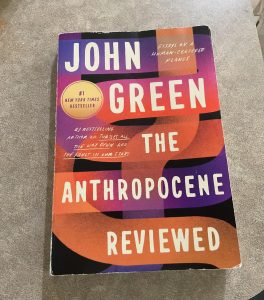Craving caffeine: teens affected
Coffee: it wakes the body up, it keeps it warm, boosts moods, and what basic white girl doesnt love a Pumpkin Spice Latte from Starbucks on these chilly fall days? Although caffeine has its perks, it can cause problems too. About 73% of children have some kind of caffeine daily, the American Academy of Pediatrics says. AAP would prefer that children not consume caffeine despite its improvements in alertness and moods in large doses it begins to take its toll. No matter what age, caffeine is habit forming and lacks nutrition. When it is drank a lot it can cause nervousness, tension and sleeplessness.; as well as increase blood pressure and lower a person’s heart rate. The Mayo Clinic states, “you may drink caffeinated beverages because you have trouble staying awake during the day. But the caffeine keeps you from falling asleep at night, shortening the length of time you sleep.” The Mayo Clinic suggests a maximum of 100 mg a day of coffee for teenagers, roughly one cup, while the average is 2.6 coffee drinks per day according to the Huffington Post. The caffeine crisis among teens can also result in chronic loss of sleep on to of already early mornings and late nights of school and homework. Sophomore Keren Idelman said, “…When I wake up in the morning I think about school and [I feel tired]. The warm coffee and it makes me hate life a little bit less and it tastes good.” Jennifer Temple, lead study author and an associate professor at the University at Buffalo School of Public Health and Health Professions, conducted a study in which ninety-five children and teens participated. Scientists gave them three different drinks: orange juice, a lemon-lime flavored soda, and a kind of lemonade with either a placebo added or caffeine. Neither the children or their parents knew which of the drinks had caffeine. The results showed boys between 15 and 17 reacted more immediately to caffeine than girls did. Teen boys’ heart rates decreased more and their systolic blood pressure went up higher than girls’. CNN reported, “The difference maker, scientists think, is puberty. They aren’t sure, however, if it is something physiological — like the amount of steroid hormones an adolescent makes compared to a younger child — or if it is due to other factors.” The caffeine crisis among teens overall takes a toll on the health of young adults as well as creates a craving for the energy boosting drinks throughout their lives.
October 16, 2015
Coffee: it wakes the body up, it keeps it warm, boosts moods, and what basic white girl doesnt love a Pumpkin Spice Latte from Starbucks on these chilly fall days? Although caffeine has its perks, it can cause problems too.
About 73% of children have some kind of caffeine daily, the American Academy of Pediatrics says. AAP would prefer that children not consume caffeine despite its improvements in alertness and moods in large doses it begins to take its toll.
No matter what age, caffeine is habit forming and lacks nutrition. When it is drank a lot it can cause nervousness, tension and sleeplessness.; as well as increase blood pressure and lower a person’s heart rate.
The Mayo Clinic states, “you may drink caffeinated beverages because you have trouble staying awake during the day. But the caffeine keeps you from falling asleep at night, shortening the length of time you sleep.”
The Mayo Clinic suggests a maximum of 100 mg a day of coffee for teenagers, roughly one cup, while the average is 2.6 coffee drinks per day according to the Huffington Post.
The caffeine crisis among teens can also result in chronic loss of sleep on to of already early mornings and late nights of school and homework.
Sophomore Keren Idelman said, “…When I wake up in the morning I think about school and [I feel tired]. The warm coffee and it makes me hate life a little bit less and it tastes good.”
Jennifer Temple, lead study author and an associate professor at the University at Buffalo School of Public Health and Health Professions, conducted a study in which ninety-five children and teens participated.
Scientists gave them three different drinks: orange juice, a lemon-lime flavored soda, and a kind of lemonade with either a placebo added or caffeine. Neither the children or their parents knew which of the drinks had caffeine.
The results showed boys between 15 and 17 reacted more immediately to caffeine than girls did. Teen boys’ heart rates decreased more and their systolic blood pressure went up higher than girls’.
CNN reported, “The difference maker, scientists think, is puberty. They aren’t sure, however, if it is something physiological — like the amount of steroid hormones an adolescent makes compared to a younger child — or if it is due to other factors.”
The caffeine crisis among teens overall takes a toll on the health of young adults as well as creates a craving for the energy boosting drinks throughout their lives.


![Coffee: it wakes the body up, it keeps it warm, boosts moods, and what basic white girl doesnt love a Pumpkin Spice Latte from Starbucks on these chilly fall days? Although caffeine has its perks, it can cause problems too.
About 73% of children have some kind of caffeine daily, the American Academy of Pediatrics says. AAP would prefer that children not consume caffeine despite its improvements in alertness and moods in large doses it begins to take its toll.
No matter what age, caffeine is habit forming and lacks nutrition. When it is drank a lot it can cause nervousness, tension and sleeplessness.; as well as increase blood pressure and lower a person's heart rate.
The Mayo Clinic states, “you may drink caffeinated beverages because you have trouble staying awake during the day. But the caffeine keeps you from falling asleep at night, shortening the length of time you sleep.”
The Mayo Clinic suggests a maximum of 100 mg a day of coffee for teenagers, roughly one cup, while the average is 2.6 coffee drinks per day according to the Huffington Post.
The caffeine crisis among teens can also result in chronic loss of sleep on to of already early mornings and late nights of school and homework.
Sophomore Keren Idelman said, “...When I wake up in the morning I think about school and [I feel tired]. The warm coffee and it makes me hate life a little bit less and it tastes good.”
Jennifer Temple, lead study author and an associate professor at the University at Buffalo School of Public Health and Health Professions, conducted a study in which ninety-five children and teens participated.
Scientists gave them three different drinks: orange juice, a lemon-lime flavored soda, and a kind of lemonade with either a placebo added or caffeine. Neither the children or their parents knew which of the drinks had caffeine.
The results showed boys between 15 and 17 reacted more immediately to caffeine than girls did. Teen boys' heart rates decreased more and their systolic blood pressure went up higher than girls'.
CNN reported, “The difference maker, scientists think, is puberty. They aren't sure, however, if it is something physiological -- like the amount of steroid hormones an adolescent makes compared to a younger child -- or if it is due to other factors.”
The caffeine crisis among teens overall takes a toll on the health of young adults as well as creates a craving for the energy boosting drinks throughout their lives.](https://shsleaf.org/wp-content/uploads/2015/12/Meggie-DiGiovanna-793x900.jpg)




